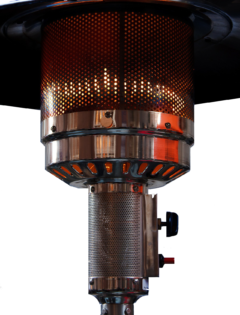Heaters usually are very reliable units and work flawlessly for 10-20 years. Hot water heater repair usually needed when the life of the unit comes to an end. In such cases users encounter the following typical problems: hot water heater leaking, the unit produces no hot water, hot water heater problems related to a calcium buildup. Of course, you commonly need hot water heater replacement, if it is 20-years-old, but for the newer units, water heater problems can be successfully solved through troubleshooting and repair service.
Hot Water Heater Leaking
Hot water leaking is uncommon with modern units, but it occasionally occurs. Water heater leakages are one of the top sources of water losses (Insurance Institute for Business and Home Safety – IBHS). The leak often doesn’t seem like a big problem, but it can quickly turn into it when it is a symptom of a larger problem. IBHS also says that about 70% result from slow leaks. Even a small amount of water may cause significant damage to your walls and floors. In extreme cases, large leakage can cause a significant personal property damage.
The reasons of a hot water heater leaking are as follows. Many malfunctions are caused by improper installation: bad water conditions, improper venting, improper pump work cause a failure within first few years. When properly installed, the heater should last up to 20 years. And most of them will never leak.

A suitable drain pan (check the prices) removes water and goes it into the sewer system. It prevents additional damage and saves about $4000 (an average cost of repairs after such incidents (IBHS). With the pan also easier to notice small leaks, so you can fix the problem before the water runs out of the unit’s bottom.
Not every water drop is necessarily caused by the leak. Heater inlet cold water pipes and other appliances during damp weather can form condensation and water dripping. So at first just wipe it up and try to find its source.
Inspect the unit, fittings, and plumbing for signs of leakage with paying particular attention to directly overhead placed elements. If you had found nothing, lay down a paper towel check on it every few hours. If the problem does not reappear for a few days, the water heater is OK.
If the leak still occurs, you should shut off the water supply to prevent the water from damaging your floor. A hot water heater leaking through heating element gasket is the most common among electrical units and is slightly risky. The gasket is relatively cheap and the water heater repair is fairly simple.
The flexible hoses are very affordable, but occasionally become a cause of hot water leaking. If the leak remains undetected for a long time, it can turn into a great water breakthrough.
Sometimes Rinnai direct vented natural gas hot water heater leaking appears between the sections of the air vent. In the Rinnai the vent pipe has the exhaust pipe inside the fresh air supplying pipe. Hot exhaust pipe may form condensation and very slow leak when it is not graded outward and there is no condensate collector installed.
How to Prevent Hot Water Heater Leaking – Proper Maintenance

The heating elements in the tankless units get extremely hot. The harder the water (see the hardness map) the more magnesium, calcium and other deposits occur inside the heating elements.
To prolong heater’s life, you can use filters and softeners or clean unit annually or twice a year (if the water is very hard).
With a soft water, many users never cleaned or flushed tankless heaters have no issues. If you have a filter and water softener, you can go longer between flushes (once in 5 years or so). But you should clean it sometimes, it will also remove dirt and debris from the heating element.
To clean the heater you take unit offline, connect a pump and for an hour circulate through the tankless lines a 5-gallon bucket of vinegar.
The water movement in a storage heater is very limited and the hardness settles in the heating element (electric heaters) and on a bottom of the tank (gas one). It insulates heater element from the water and causes a less efficient heat transfer. Many of gas storage heaters fail when the tank’s bottom is burned through. Tankless heaters affected by hard water not quite as quickly. There is less water in the heating element. Drops mainly move out of the heater with water flow. So scale on interior walls grows at a slower rate.
But sooner or later this buildup will result in the heat exchanger overheating, will cause unit’s error code and shut down. The water heater will not operate until reset and the problem fixed. Without cleaning of the heater element, resetting will cause protective shut down again.
If you’ve installed water piping kit, removing the scale buildup is very fast and easy. In 30-60 minutes your heater will be ready again! This makes tankless units a much better investment than a storage heater that can not be cleaned or repaired properly.

